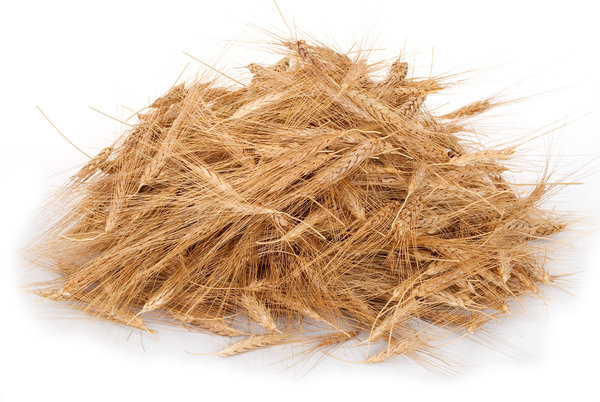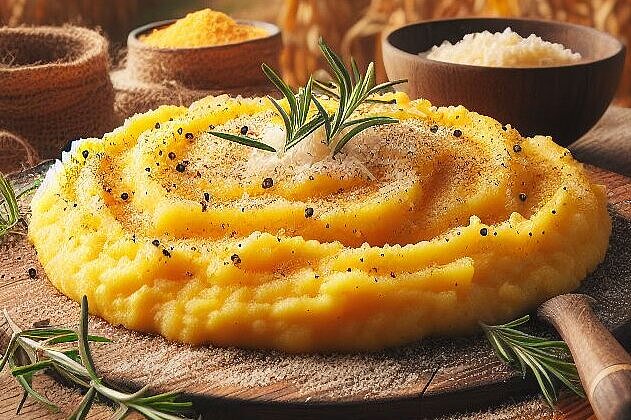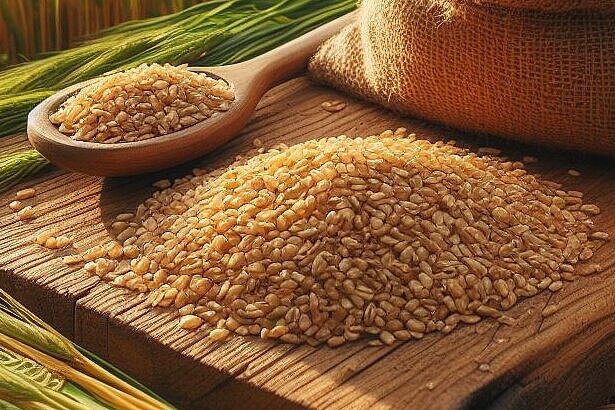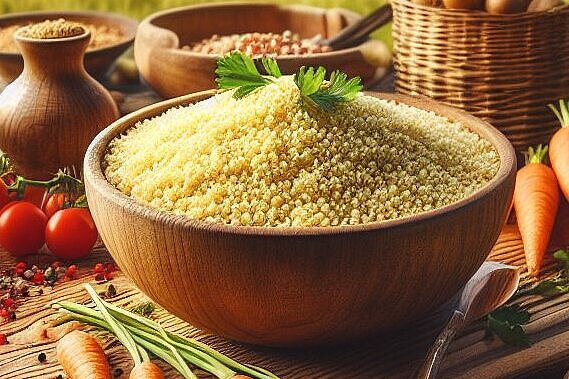Corn grits
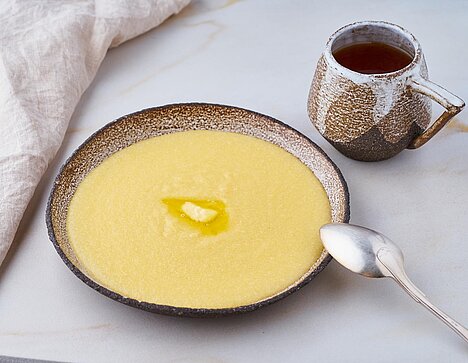
What is corn grits?
Corn grits is the finely ground endosperm of the corn kernel that remains after the husk, germ and most of the starch have been removed. It contains mainly proteins, fats and fiber and has a high energy content. Corn grits are often used as animal feed or as a base for polenta or semolina porridge.
What are the benefits of corn grits for dogs?
Corn grits can have several benefits for dogs, depending on their individual nutritional needs and health status. For example:
- Corn grits can be a good source of energy for dogs that need a lot of exercise or are underweight.
- Corn grits can be an alternative for dogs that are allergic to other grains such as wheat or barley.
- Corn grits can aid digestion as they contain fiber, which can regulate bowel movements and support intestinal flora.
- Corn grits can improve skin and coat health as it contains essential fatty acids such as linoleic acid, which can reduce inflammation and strengthen cell membranes.
What are the disadvantages of corn grits for dogs?
However, grits can also have some disadvantages for dogs that you should be aware of before feeding it to your dog. For example:
- Corn grits can lead to obesity if fed in excessive amounts, as they contain a lot of calories and cause blood sugar levels to rise quickly.
- Corn grits can lead to nutrient deficiencies if they are the main component of the diet, as they contain few vitamins and minerals and can impair the absorption of other nutrients.
- Corn grits can cause digestive problems if they are not well tolerated or are of poor quality. It can cause flatulence, diarrhea or vomiting, or contain mold toxins that can lead to liver or kidney damage.
- Corn grits can cause allergies or intolerances if the dog is sensitized to it or has a genetic predisposition. It can trigger itching, skin rashes or ear infections or weaken the immune system.
What should you watch out for when feeding your dog corn grits?
If you feed your dog corn grits, you should pay attention to a few points in order to provide him with a balanced and healthy diet. For example:
- Only feed your dog high-quality corn grits that are free from contaminants and mold. Pay attention to the best-before date and storage conditions of the product.
- Only feed your dog a moderate amount of corn grits that meets its energy requirements. Follow the manufacturer's feeding recommendations or ask your vet for advice.
- Don't just feed your dog grits, but supplement their diet with other high-quality protein sources such as meat, fish or eggs, as well as fresh fruit and vegetables.
- Monitor your dog for any signs of intolerance or allergy to grits. If you suspect that your dog has problems with corn grits, switch him to a different food.
Corn grits are a common ingredient in dog food that can have both benefits and drawbacks for your dog. Whether or not you should feed your dog grits depends on their individual health, age and activity level. If you choose to feed grits, make sure that they are of good quality, that you feed them in appropriate amounts and that you combine them with other nutrients.
If you notice any signs of hypersensitivity or poisoning in your dog, you should see your vet immediately. We are not a substitute for a vet, but we try to be as accurate as possible. Every dog reacts differently and we recommend you get a second opinion or consult your vet if in doubt.
Stay healthy and take good care of your four-legged friend!😊
Similar to Corn grits
Wheat semolina bran has a number of benefits for your dog's health and well-being: It is rich in fiber, which aids digestion and increases satiety. This can be helpful for dogs that tend to be...
Polenta is a corn product made from the finely ground endosperm of the corn kernel. It is rich in carbohydrates, fiber, vitamins and minerals. Among other things, polenta contains vitamin A, B...
Bulgur is a cereal product made from durum wheat semolina. To make bulgur, the semolina is soaked, cooked with steam, dried again and the husks removed. The remaining grains are then coarsely or...
Couscous is a cereal product made from durum wheat semolina. The semolina is mixed with water and salt and formed into small balls, which are then dried. To prepare couscous, simply soak it in...
